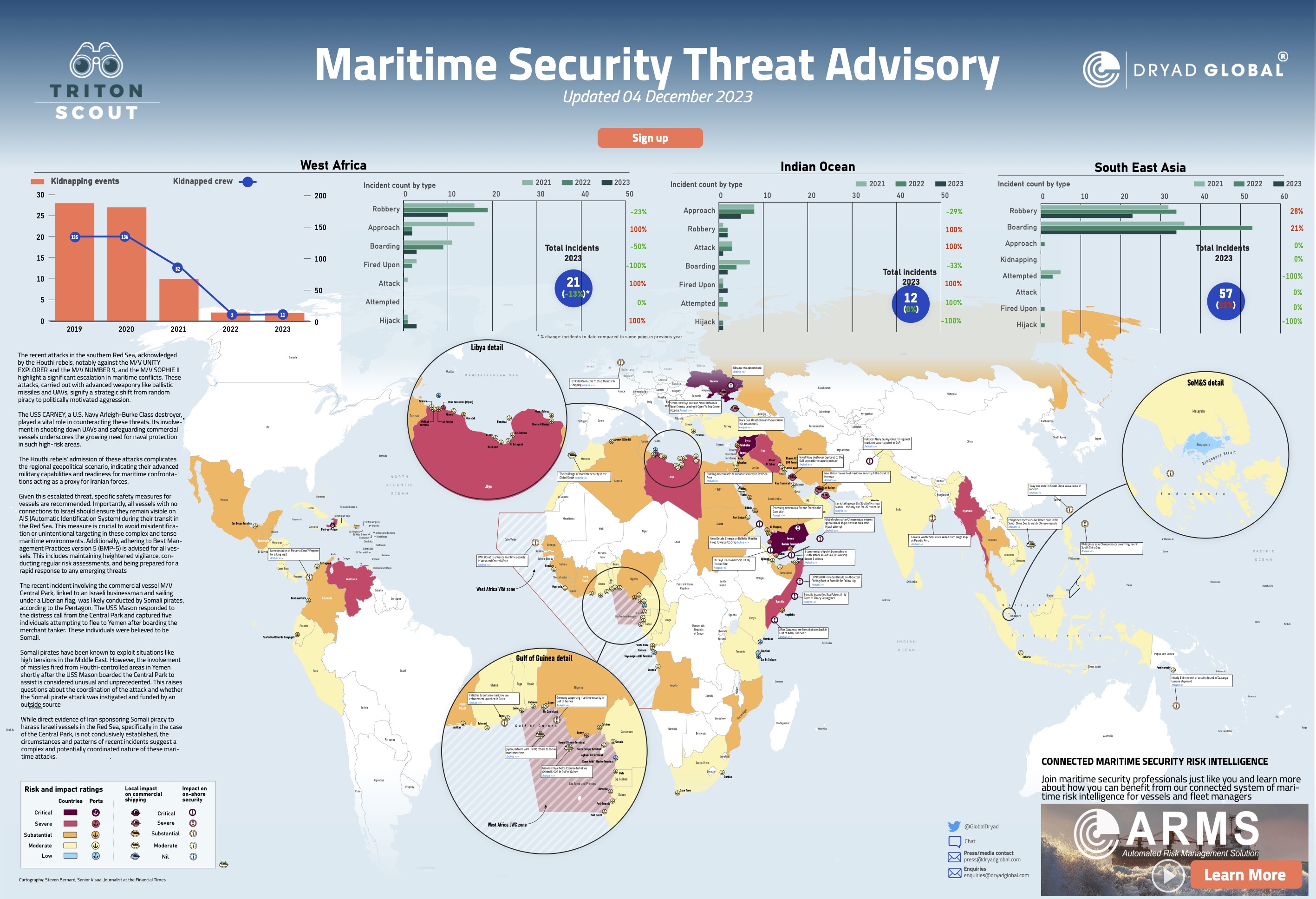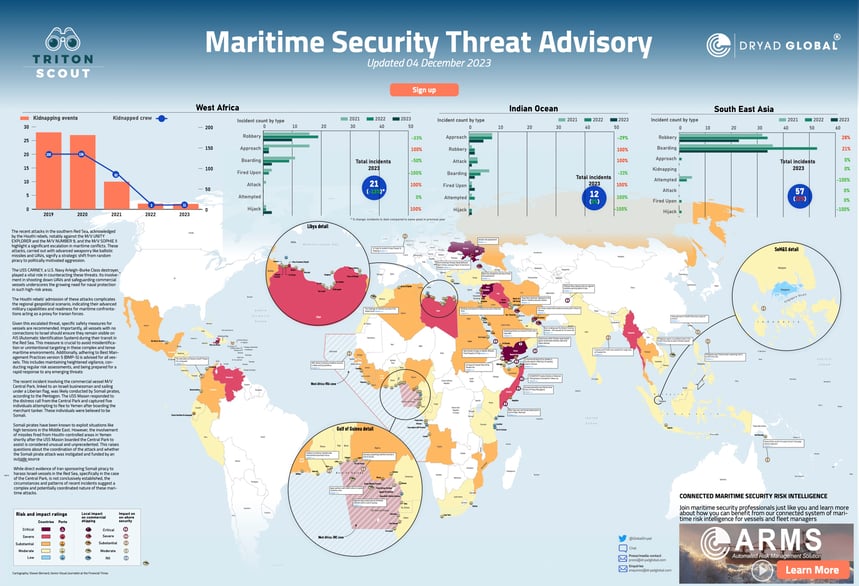Access the latest Maritime Security Threat Advisory for the week commencing 4th December 2023.
👉 The recent attacks in the southern Red Sea, acknowledged by the Houthi rebels, notably against the M/V UNITY EXPLORER and the M/V NUMBER 9, and the M/V SOPHIE II highlight a significant escalation in maritime conflicts. These attacks carried out with advanced weaponry like ballistic missiles and UAVs, signify a strategic shift from random piracy to politically motivated aggression.
The USS CARNEY, a US Navy Arleigh-Burke Class destroyer, played a vital role in counteracting these threats. Its involvement in shooting down UAVs and safeguarding commercial vessels underscores the growing need for naval protection in such high-risk areas.
The Houthi rebels' admission of these attacks complicates the regional geopolitical scenario, indicating their advanced military capabilities and readiness for maritime confrontations acting as a proxy for Iranian forces.
Given this escalated threat, specific safety measures for vessels are recommended. Importantly, all vessels with no connections to Israel should remain visible on AIS (Automatic Identification System) during their transit in the Red Sea. This measure is crucial to avoid misidentification or unintentional targeting in these complex and tense maritime environments. Additionally, adhering to Best Management Practices version 5 (BMP-5) is advised for all vessels. This includes maintaining heightened vigilance, conducting regular risk assessments, and being prepared for a rapid response to any emerging threats.
The recent incident involving the commercial vessel M/V Central Park, linked to an Israeli businessman and sailing under a Liberian flag, was likely conducted by Somali pirates, according to the Pentagon. The USS Mason responded to t h e d i s t r e s s c a l l f r o O mC E t Ah eN C e n t r a l P a r k a n d c a p t u r e d f i v e individuals attempting to flee to Yemen after boarding the merchant tanker. These individuals were believed to be Somali.
Somali pirates have been known to exploit situations like high tensions in the Middle East. However, the involvement of missiles fired from Houthi-controlled areas in Yemen shortly after the USS Mason boarded the Central Park to assist is considered unusual and unprecedented. This raises questions about the coordination of the attack and whether the Somali pirate attack was instigated and funded by an outside source.
While direct evidence of Iran sponsoring Somali piracy to harass Israeli vessels in the Red Sea, specifically in the case of the Central Park, is not conclusively established, the circumstances and patterns of recent incidents suggest a complex and potentially coordinated nature of these maritime attacks.






